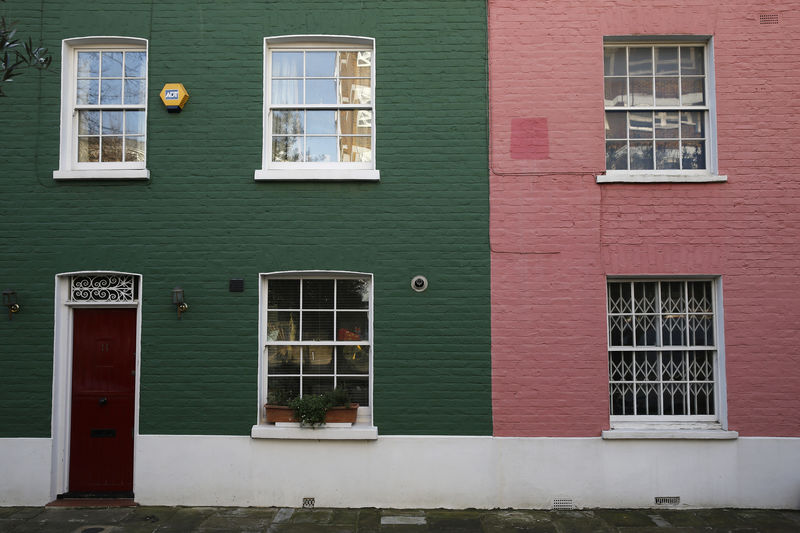By Andy Bruce and William Schomberg
LONDON (Reuters) - The outlook for Britain's housing market is darkening fast ahead of Brexit, with sales expectations falling to their lowest level in at least 20 years by one measure, surveys showed on Thursday.
The Royal Institution of Chartered Surveyors (RICS) said the net balance of -28 in December among surveyors about the short-term outlook for housing sales was the weakest since it began asking the question in 1999.
The housing market has slowed since the June 2016 Brexit referendum, with house prices, as measured by mortgage lenders Halifax and Nationwide, growing at the slowest pace in around five years.
Britain is due to leave the European Union on March 29 and there is still no clarity over the terms of its departure, after lawmakers rejected Prime Minister Theresa May's proposals by a huge margin on Tuesday.
A separate survey from the Bank of England showed lenders in Britain expect demand for mortgages and credit cards will fall by the greatest extent seen for several years.
Its gauge of forecast demand for mortgage lending over the next three months fell to -17.5 in the fourth quarter of 2018 from 0.2 in the third quarter, its lowest level since late 2010.
The BoE survey also showed lenders expect demand for credit card lending to fall at the fastest pace since records started in 2007.
"The (BoE) credit conditions survey added to the evidence that the housing market is currently on the back foot amid heightened uncertainties and challenging conditions. This follows a very weak RICS December report," said Howard Archer, economist at the EY ITEM Club consultancy.
Simon Rubinsohn, RICS' chief economist, said December's fall in price expectations was linked to Brexit uncertainty, which has deepened further since parliament rejected May's deal.
(GRAPHIC: UK housing sales expectations hit record low - https://tmsnrt.rs/2SWjq9e)
"Looking a little further out, there is some comfort provided by the suggestion that transactions nationally should stabilize as some of the fog lifts, but that moment feels a way off for many respondents to the survey," Rubinsohn said.
In a report in November, the BoE said a "disorderly" exit scenario -- involving severe delays at UK borders and financial markets losing confidence in British institutions -- could lead to sterling falling to almost the same value as the dollar, 6.5 percent inflation and a 30 percent fall in house prices.
BoE Governor Mark Carney said on Wednesday that sterling's rise after the Brexit vote suggested investors now see less risk of a no-deal Brexit or the prospect of a delay, but added that he would not put much weight on these moves.
RICS' measure of house prices in December was its weakest since August 2012 at -19, below the median forecast of -13 in a Reuters poll of economists.

Prices were expected to remain flat over the next 12 months with the exception of London and south east where they have been falling, RICS said.